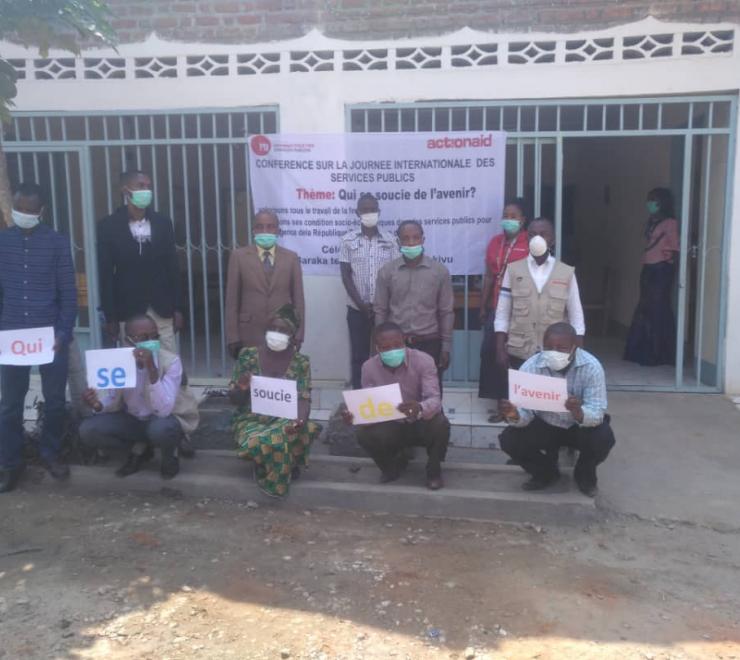CONFERENCE ON INTERNATIONAL PUBLIC SERVICE DAY: WHO CARES FOR THE FUTURE?
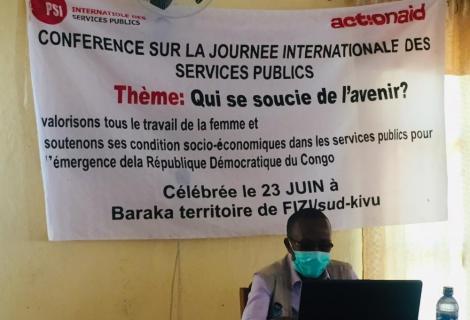
Concerned about the condition that women go through in the public services of the Democratic Republic of Congo and the impact of the COVID-19 pandemic on the living of most vulnerable people especially health workers, teachers and other essential frontline staff including women and girls.
Actionaid International in collaboration with Public Services International enhanced this day with a conference organized in Baraka in the territory of Fizi in to present of the political administrative authorities, the executives of the public service and the humanitarian community the report of awakening of the conscience to take into account the needs of the woman and to contribute to the advocacy on the improvement of the socio-economic conditions of women's work in public services in the Democratic Republic of Congo.
On June 23 of each year, the whole world celebrates the International Day of Public Services. Women and girls face multiple burdens of unpaid care and domestic work, which are assigned to them both by the roles that the patriarchal system attributes to their gender and by the inability of modern states to provide public services tailored to the needs of women. When governments cut back or don't fund public services enough, women are the ones who take on more of the time-consuming responsibilities, such as caring for their families, young children, the sick and people. elderly or always walk further to fetch water and fuel.
Unfortunately, struggles to demand basic services that could make the difference for unpaid care and domestic work are often less considered. This can change thanks to decent work in the public sector.
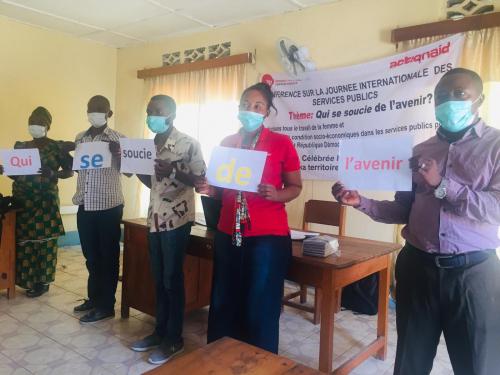
Feminist economists argue that care, rather than capital, should be at the center of our concerns. This situation will worsen in the coming years due to the climate crisis and increasing dependency on care for the large population of children and young people in Africa. There is an urgent need to rethink economic systems in order to fully integrate the concept, meaning and importance of care work and to recognize planetary boundaries by reshaping our social and public policy frameworks accordingly. Under international law, respect, protect and fulfill human rights in education, health and water. The provision of quality public services is essential to fulfill these obligations and it can also have a huge impact on the burden of unpaid care and domestic work borne by women, enabling them to access paid work (including in the public services themselves) and to participate fully in their communities and in society in general.
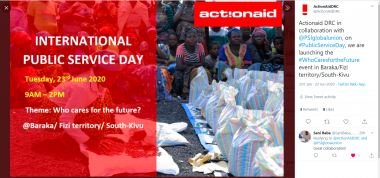
- Actionaid and Public Services International held a joint advocacy event on WHO CARES FOR THE FUTURE during the international public service held in Baraka in
integrating COVID19 context. On Twitter...
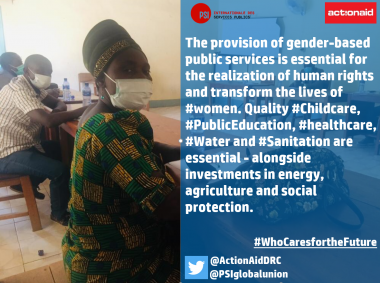
With the impact of the COVID-19 pandemic on women and health workers, a press release has been broadcasted with four different Local radios (Kinshasa, Goma, Bukavu and Baraka) addressed to the Political and administrative authorities, public service executives and The community of humanitarian actors in recognition to the work that the government has achieves and congratulate the courage and dedication of the health workers who are on the front line of the COVID-19 response; the press release focused on the measures to mitigate the collapse in the provision of essential public services in the context of COVID-19 for people to live with dignity.
